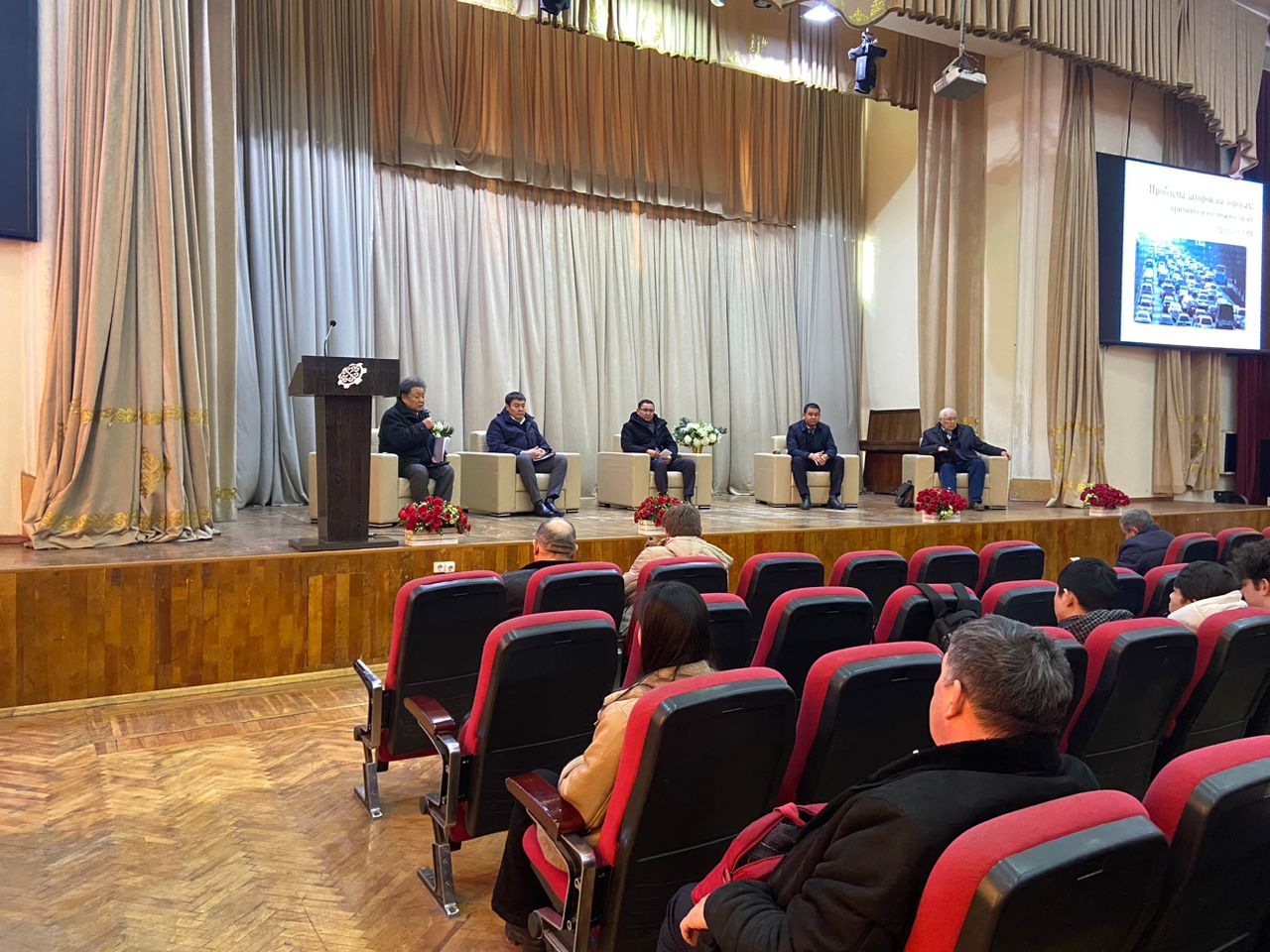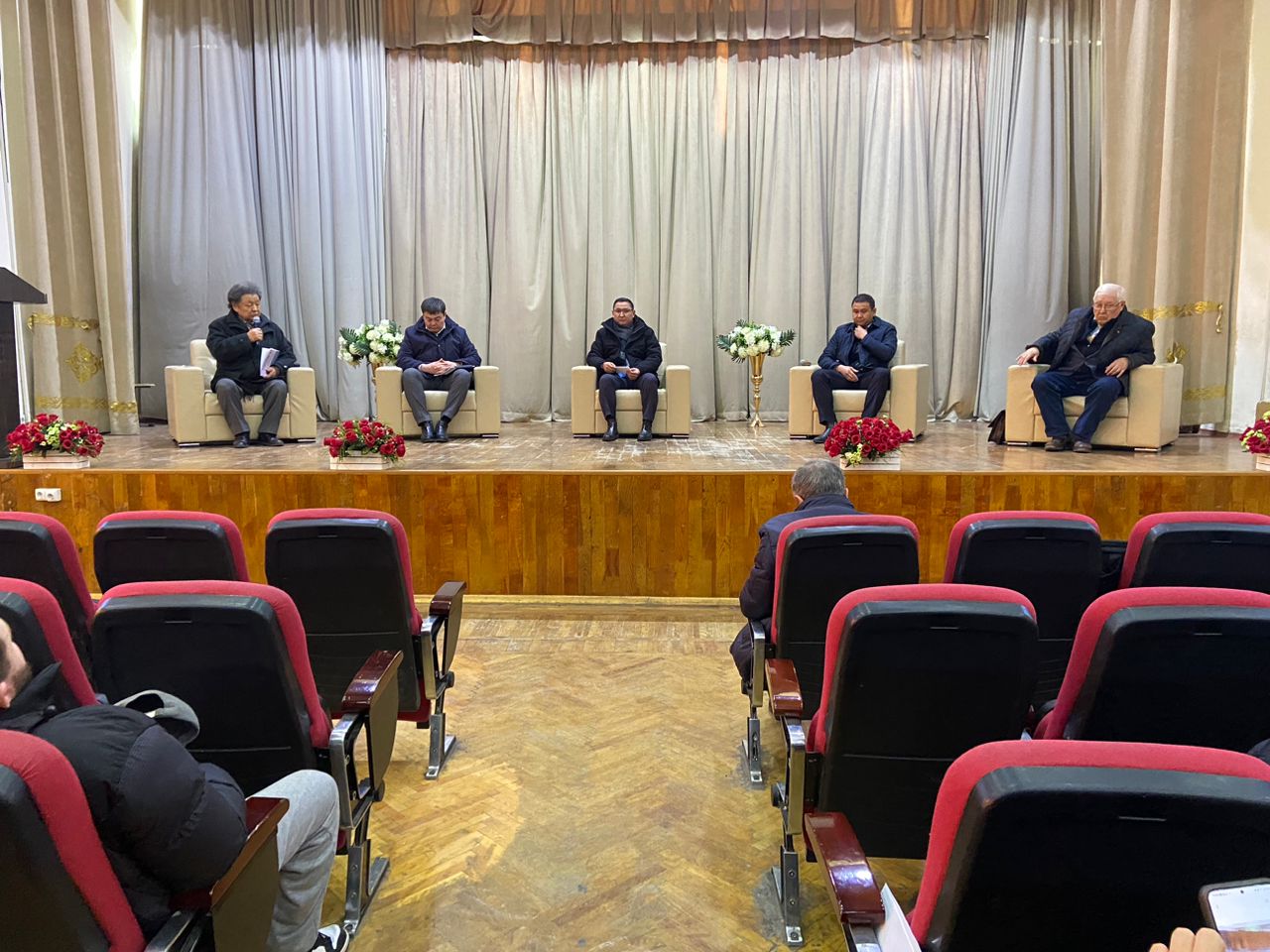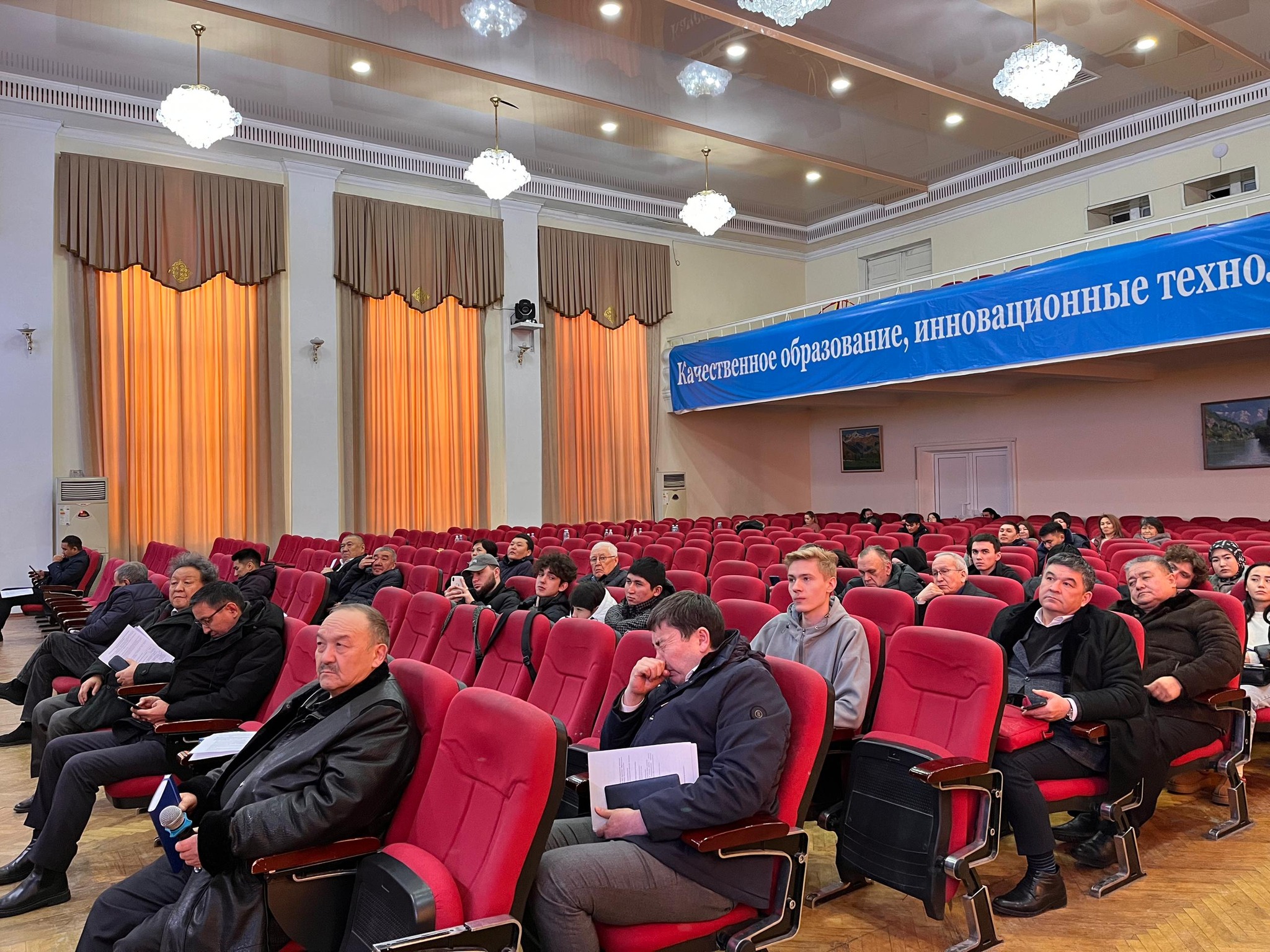On February 27, 2024, a roundtable meeting took place in the conference hall of the I. Razzakov Kyrgyz State Technical University with the participation of representatives from the City Hall.
On February 27, 2024, a roundtable meeting took place in the conference hall of the I. Razzakov Kyrgyz State Technical University, involving representatives from the City Hall, the Department of Transportation and Infrastructure Development, the State Road Traffic Safety Inspectorate (GUOBDD), Bishkek Passenger Motor Transport Enterprise (APTP), Bishkek Trolleybus Administration (BTU), municipal enterprise leaders and their staff, the NGO "Alliance Bus Association," representatives from the civil sector, and experts - professors and students from the International Higher School of Logistics at I. Razzakov KSTU.
The event was organized by the Bishkek City Hall, the International Higher School of Logistics at I. Razzakov KSTU, and the Coordination Council for the Development of Public Passenger Transport and Road Transport Infrastructure in Bishkek.
The roundtable aimed to discuss urban transportation issues and formulate joint efforts to improve public transportation services and create favorable conditions for the population in the infrastructure of Bishkek, utilizing digitization and IT technologies.
Ulan Beishenbaev, the director of the Department of Transportation and Infrastructure Development, addressed the attendees with a welcoming speech, emphasizing the significance of the event for the city's development and collaborative problem-solving in transportation.
Following this, Associate Professor of the International Higher School of Logistics, A.A. Kydykov, presented a report on the analysis of traffic jams and congestion in the city, along with suggestions for alleviating these issues.
Talent Kaparov, the head of Bishkek Passenger Motor Transport Enterprise and Bishkek Trolleybus Administration, provided insights into the state of passenger motor transport enterprises and trolleybus management, sharing opinions on the existing passenger traffic management system, route movements, and the future prospects of passenger transport enterprises.
Students from the 1st and 3rd courses of the International Higher School of Logistics, organized in the Logistics Club, presented the results of their research on the occupancy of public transport stops and the monitoring of bus movements in designated lanes, along with all other vehicles on a one-way street with changes in road markings.
Renat Sultanmamytov, the director of the municipal enterprise for road and transport infrastructure, delivered an intriguing presentation on the implementation of an automated traffic control system (ASUDS) in Bishkek, detailing the characteristics of the implemented traffic light control systems and outlining the project's future development.
In the concluding presentation, Professor of the International Higher School of Logistics, T.M. Shabdanaliev, summarized the research findings on the efficiency of trolleybus utilization in Bishkek and the prospects for this mode of transport.
The roundtable concluded with a unanimous resolution acknowledging the importance of the collaborative efforts between the Bishkek City Hall, its departments, and I. Razzakov KSTU within the Coordination Council for the Development of Public Passenger Transport and Road Transport Infrastructure in Bishkek, as well as the Expert Group of I. Razzakov KSTU.
The resolution also aims to continue relevant work in the following areas: expanding roads and establishing dedicated lanes for public transport; improving the movement schedule by optimizing schedules to reduce intervals between trips and enhance passenger convenience; implementing GPS technologies for tracking the location of vehicles and informing passengers about arrival times; improving service quality through staff training, maintaining cleanliness in transport, and ensuring comfortable conditions for passengers; expanding the implementation of ASUDS and other measures to enhance traffic light regimes, including artificial intelligence and other technologies.
The event was engaging, constructive, with active discussions on the addressed issues. All questions raised sparked interest, and comprehensive answers were provided. The organizers agreed to hold such roundtable meetings on a regular basis.








